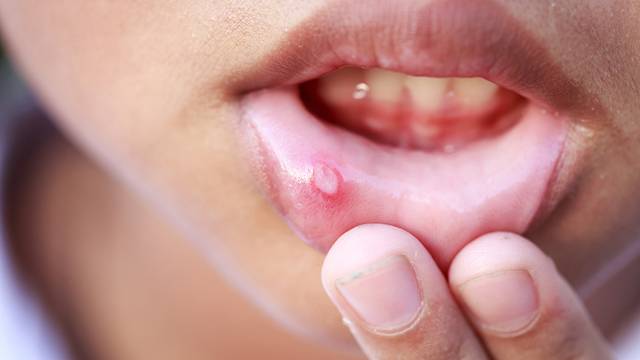

Oral ulcers refers to the little sores that come up inside the mouth, on the tongue or on the gums. There are many causes of oral ulcers in toddlers and young children, but they usually occur following some trauma to the mouth such as:
Oral ulcers can also happen when children feel tired or stressed or if is a family history of recurrent oral ulcers.
Infections are another major cause of oral ulcers in children. Common viral infections include hand-foot-and-mouth disease (HFMD), chickenpox, and herpes gingivostomatitis (otherwise known as cold sore). If an infection is the cause, symptoms such as fever, malaise, or rashes may accompany in some cases.
Dr Tan Zhen Han, Paediatrician, SBCC Baby & Child Clinic said: “Although rare, mouth ulcers can sometimes with associated with an underlying medical condition, in which there may be recurrent mouth ulcers together with other associated features. Some of these conditions include vitamin deficiencies (For example, Iron, vitamin B12, folate, vitamin C, zinc, magnesium), impaired immune system, and gastrointestinal tract disease.”
Preventive measures
A good oral hygiene practice is extremely important. Be sure your child uses a toothbrush with soft bristles, and brushes gently, and do take them to visit the dentist regularly.
If your child has a habit of sucking their thumbs, remember to cut their nails regularly. For younger children, watch out for toys or objects with sharp edges that your child may put into their mouth
Similarly, having a good hand hygiene is equally important. Parents and teachers should start teaching children regular hand washing at home and in school from young as this can help reduce the spread of infections such as HFMD.
When to visit a doctor?
You should bring your child to the doctor if:
Treatment for oral ulcers
If your child is in significant pain, your doctor may prescribe a topical local anaesthetic (washes, gels, drops or sprays). Such forms of remedy may provide some short term symptomatic relief, which also help improve oral intake.
Give your child small frequent sips of water every now and then as this will help to prevent dehydration.
What can parents do to help the child ease the discomfort?

Dr Tan Zhen Han
Paediatrician
SBCC Baby & Child Clinic
MBBS (S’pore), MRCPCH (UK), FAMS (Paediatrics)
This article is brought to you by Healthway Medical.
Copyrighted Pregnancy & Baby by Mummys Market 2019


